Turtle Island, Conversations, Issue 02
Alanis Obomsawin on the Role of Documentary in Resisting Erasure and Preserving Memory
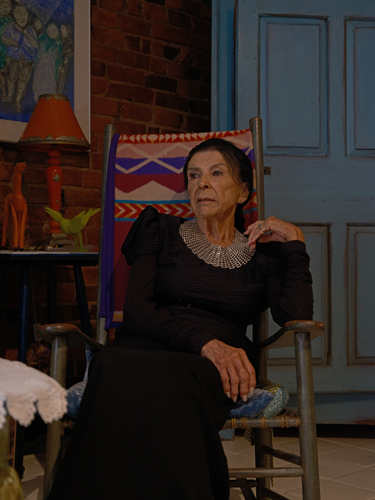
It’s a rainy day in the middle of a heatwave, a feel-good day, Maya says. A welcome day. We are at the National Film Board in downtown Montreal, here to interview the legendary Alanis Obomsawin. She invites us into her office, and we pull in disparate chairs. A rolling filing cabinet becomes the table that gathers. Alexei’s arms unfold a sofra: a world of figs, dates, olives, almonds. Arctic tea steeps. We share space, hold space. Silent moments inform us the order never mattered. The room is ripe, and we are left together to exchange.
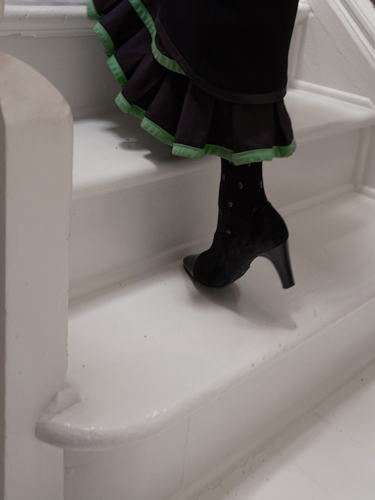

Hoda Adra: I met you once at Parc La Fontaine. You were giving a speech, and I teared up. You passed by right beside me and said, “Whatever it is, the sun will rise back up the next day.” Many people, especially from my generation, have a hard time feeling activated. The material world takes plenty away from us, and it takes even more work to get it back. I know that for me and other people, we act from that place of connection, of activation. How do you keep that working? We inevitably participate in things that are destructive, but it’s hard for me to participate in them knowing that I care about land. How do you make sense of that?
Alanis Obomsawin: Everything that has to do with nature has to do with life. For me, life is very sacred, it’s a gift. I’m not even supposed to be alive: when I was a baby, they watched me and said I was going to die. I know life’s value. How sacred it is. Somehow, you work all your life, and, in my case, I’m always fighting and always thinking about the next generation—the ones that are here now and the ones to come. I want to make a better place for them. That’s what drives me.
I feel that there are incredible changes happening now in this country, and I see that everything is possible. No one is going to make me think any differently. Many doors that were tightly closed are now open. People are hearing, and they want to know the real history. There are big changes that have come about in the last five to ten years, and of course, reconciliation has done a lot to help this happen.
The land issue is a big thing for all our Nations, but there are new decisions and new fights that people are winning, individually, in different Nations. The Tsilhqot’in from British Columbia won a case they had been fighting for over 30 years. Now their land is under their name—no longer a reservation nor a crown land or anything like that. I’m not saying this happens overnight. But I think people, in general, want to see justice for our people in our country, and this is beyond hopeful—it is much more profound than that. This is what I think: how lucky I am to have been given life, and not only that, but to live this long and to be a witness to this change. This is how I feel.
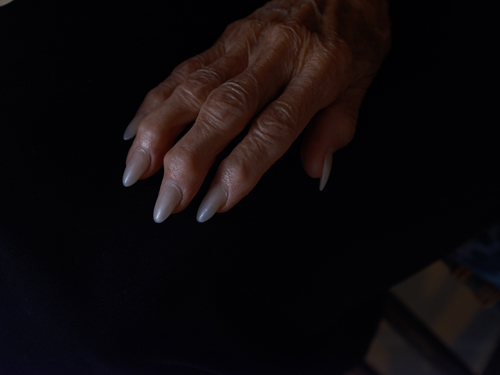
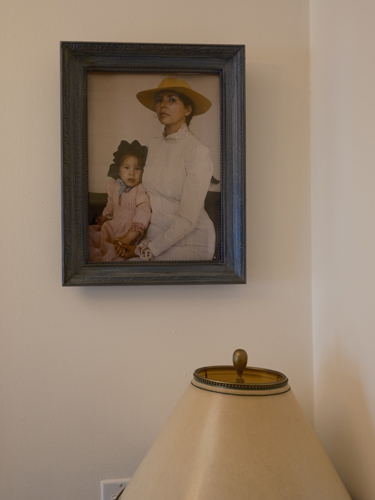
Hoda: I have been following the Unist’ot’en Camp and the work of the healing center there, which is to help the people reconnect with their land. It’s an amazing thing. It makes me think of you, and somehow, in my mind, I envision a camera and a land and some roots growing in-between them. I wanted to ask you how you made the link between the camera, your body, and the land. How did that come about?
Alanis: The land is the people. We call the earth our mother, we often call it Turtle Island. I was always concerned about treaties and their history. Before, if you spoke of a treaty, people would say things such as, oh, that doesn’t exist anymore nor does it mean anything, but it is not true. It is part of our everyday life, and I wanted this to be clear when I made the film Trick or Treaty? The reason I am where I am… at first, I was doing this work through singing. Much later on, I was approached to work in films, and I realized how powerful film was, and how it made it possible to force changes, legally.
Hoda: How? I know oral history holds power—oral histories were given legitimacy in the Canadian Supreme Court for the first time in the 1990s, right? To provide evidence for a case…1 Why is film stronger than, let’s say, singing, performance, storytelling?
Alanis: It’s all part of it. Storytelling has been with our people for thousands of years. It is a very old culture—like eating. Our people have been silenced for a long time. Our people are very beautiful. They just don’t know it, and I am going to tell them till I die. I keep telling them: there is not one person that does not have an interesting story to tell.
Film is very powerful, but for me, the most important thing is the word—to hear, to really listen to someone’s story. I know that films have influenced changes in terms of law, like the film I made a long time ago called, Richard Cardinal: Cry from the Diary of a Métis Child. It’s just a half-hour long film, but it has caused big changes. We, the people, have the power to make big changes. If you’re lucky, other people might see a documentary that you’ve made, or hear a song you wrote, and it might influence them to make changes. I’ve seen this happen all along, all these years.
For me, the power of the word is sacred. I think it’s because of where I come from. Where I was raised in Odanak, we had no electricity or running water. We had a well, and at night the oil lamps were lit, and we listened to adults talking. They told a lot of stories where the men were guides in the bush for hunting and fishing, and their encounters were so important. The animals have their own history, just like people.
When I began making films, I did interviews like you’re doing, focusing on sound only without image, and this proved to me that I was right, that the word is very sacred. Storytelling brings out different feelings, but they won’t come through if you’re on camera, or if you start in right away without knowing the people you’re interviewing. I still work like this. The voice is the most important thing in documentary filmmaking. I get into arguments when I visit some universities where they teach film. They say not to worry about the sound—we can always redo it in the studio—but I don’t like that. If you’re doing fiction, that’s something else, but not if you’re working in documentary.
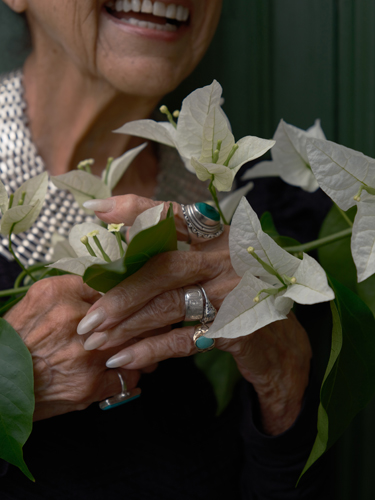
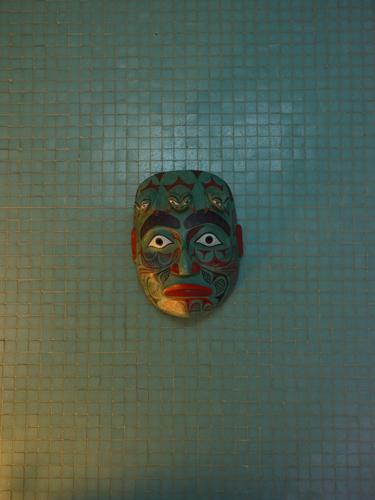
Hoda: Did you choose documentary because you found it more powerful than fiction?
Alanis: Well, I never thought of fiction or documentary. CBC made a film about me when I was doing a campaign to build a swimming pool in my community, and then I discovered film. I knew nothing about it. All I knew was that in the 50s and the 60s, no matter what film you went to see, there was always a Hollywood short film about cowboys and Indians—Indians were running around the wagon while getting shot at—you know, really stupid stuff. That’s what I knew. So there was a studio here called “Multimedia,” and their film work was intended for classrooms, and that excited me because I revolt against the current system of education. It is why I am staying here. It is the word.
Hoda: What about mythology? I know that Indigenous storytelling focuses a lot on myth, but you went straight to the people who actually told the myths.
Alanis: Every Nation has a history about the magic of animals, of legends and mythology. They’re all different cultures. No one is the same. I find it very rewarding to tell children these stories. I felt that children very much needed to hear a different story because the way this country’s history was taught was very racist, very dangerous. It created a lot of hate towards our people for many generations.
Hoda: When I came here, I didn’t know the history of the land. I came here through a migration process because my family couldn’t stay where we were from. The first thing I learned about Canada was actually about this place called Canada Park, which is a park in Palestine, built on three erased Palestinian villages. Their ruins were kept and labeled as Roman. I realized then that Canada portrayed itself as a country that would give me a shelter and a home—a way to leave my region, which has been targeted by all of these influences from North America and Europe—and then I came here, and I participate every day in this country that built Canada Park, where Zionists can buy a tree in their name from Canada and get a tax break for planting it on Palestinian land.
I realized that I’m on the land of peoples that are being erased by this country. I’ve come to understand this over the years, and now people are talking more about it. I came here 20 years ago, and there wasn’t much conversation around Indigenous rights before. Now, with news of the scandals around the mass graves of Indigenous children, Lebanese and Syrian people who have recently immigrated have cried in front of me to express their feelings that where we’re standing on this land is actually – we are like the settlers here, in a sense. A lot of these people are becoming active and trying to build partnerships. How can we, as immigrants, build these alliances with Indigenous people to support the Indigenous resistance? I know you’ve seen a lot throughout your years of visiting communities and building ties, and I’m wondering if you know of any specific ways in which we can create those links?
Alanis: It’s difficult, mainly because we want our people to do it themselves, to fight for our land and rights. This is critical because there’s been a lot of patronizing from the people of this country towards our people. As for the people that have come from other countries, especially where people force you to be something you are not, we understand that very well, and I think that, automatically, there can be a development of more common understanding, but it doesn’t just happen where you can just come to a community—I think it takes time for people to begin to trust. There are good people everywhere in the world, including in this country, that are there for us if we need them, but it doesn’t happen easily. As I’ve said, this is changing now. We fought so hard, and now there is money, and there are places at all the institutions in Canada for Indigenous people to apply to learn a discipline. I keep telling people to look in their hearts—to feel what they’d like to be or to do—because if ever there was a time when it was possible, it’s now.
Many people still have their culture and their language, and they somehow have resisted what the government and the church forced them to do. There is a better understanding now, more admitting of what was done. A lot of people became very religious and denied it. We used to say my mother was more religious than the pope; it was very difficult to get people to admit how bad the church and the government had been to our people. It took a lot for us to get to this point. It didn’t come easily or overnight.
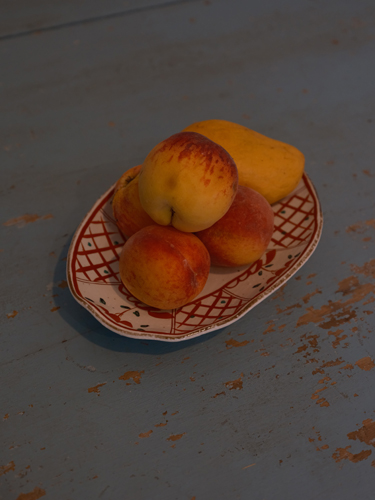

Hoda: What do you think about identity? Identity as what you uphold to exist but also as something that can become a weapon used against you.
Alanis: Every person deserves to have an identity and be respected. Everybody deserves to be what they are and to feel good about what they are. In our case, identity is more than this though. If you don’t have a status card, if you aren’t registered with the government… There are all these hurdles that are very ugly and difficult in our everyday life. They’re unhealthy, and they separate people, and this is what we have to keep working on. In a Nation, if you start separating people according to fathers and Nations, it’s just awful.
Hoda: What about the other extreme now? You see corporations celebrating identities that used to be marginalized and used to have such a hard time existing, and now corporations are kind of riding that wave. I understand people are now like, “Yes, I will represent my ethnicity or my background or my gender association…” Do you think it’s good to be in those spaces?
Alanis: Yes! Because you have to recognize who you are. You have to know your history. Whenever I’m making films, I’ll ask people if they have a photograph, and they’ll say it’s in a shoebox under their bed. Then we start looking, and a lot of times people say, “Oh, I don’t know who this,” or “I don’t know this name…” But it is your history. It is who you are! Maybe you’re not curious when you’re young, but there comes a time when you ask yourself questions. What were my grandparents like? What was my aunt like? You start to understand how meaningful every human being in your family is, and your descendance. You start to understand better who you are, and why, and how.
Every individual has a job to do in terms of finding who you are; how you got here; why did you leave your country; what did your people have to go through… Imagine if I had to leave where I am today. I would be totally broken up. All of these things make up who you are, and it’s important to know them. You need to feel good about the good things and not perpetuate the bad things, to not continue to lie. I’m not saying that it’s easy, but it is possible. It’s a decision that an individual makes on their own, to realize all of the good things that they have. First of all, you have life. That’s a gift. Life! It’s beautiful! I can walk. I am 90 years old. I can do all sorts of things. I feel I owe so much to life, and I want to give back.
[Both pause as Alanis giggles while drinking her tea.]
Hoda: I liked earlier when you said that now, people wanting to see justice for your people is beyond hopeful, it’s more profound. Could you speak a bit more on that?
Alanis: Yes. If you are hoping, you are dreaming that you want something to happen. What is more profound is what is happening now. Before, it was okay to be unjust towards other people—towards your children, your grandparents, your parents, your neighbors… it was everyday life, but now, it’s not. It’s changing. That, to me, is a gift. That people want to ask themselves questions, that they want to be good.
Hoda: Where does that change come from?
Alanis: That change comes from people finding out about themselves, discovering that they deserve to be what they really are. Not dictated by what someone else wants them to be. That it’s okay to think a certain way, to be a certain way. You have to say no, and many people are saying no. There are changes and there will be more changes.
Imagine in our world, before the strangers came here, we all had different cultures and different things to go about doing. And the woman was the most respected human being because she holds the highest power of all—she is the one that gives life! It’s as simple as that. By the time the strangers came here, and the government, and the church, it became the man. The chief had to be a man. All the power that the woman had was transferred to the man. You lose your culture and your history—you know nothing while just being dictated and controlled. More and more, this is no longer accepted. It did take time though, many generations. Thank god, I am 90 years old, and I see something very different now.
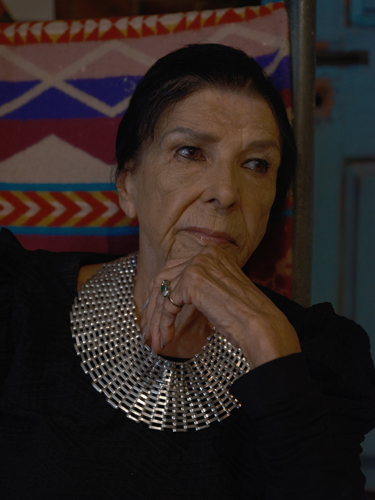
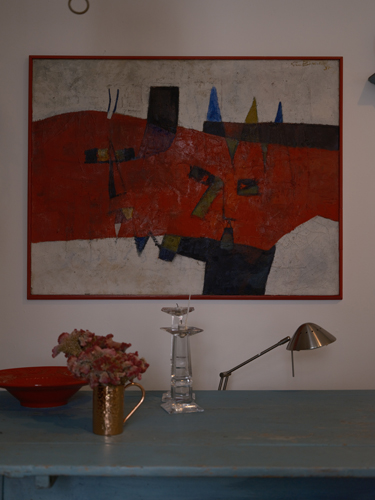
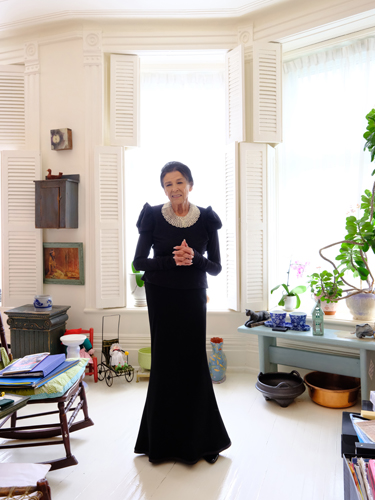
Hoda: Do you feel like you specifically support women?
Alanis: Oh, yes. We fight back. In 1973 and 1974, people in Canada were talking about how 1975 was going to be “International Women’s Year.” Five indigenous women working in different government offices wanted to meet with me. They said, “Alanis, we don’t have any films on our women. We want to you to make one. With 1975 being the year of the woman, there will be money available…”. They said they would make sure I got some money because it was very difficult to get funds. I said that I’d do it, and we started talking.
Some people said that I should make a film about a famous woman, but I said no. If I made a film about Indian women—in those days we said Native women—I would do it from the beginning of life to the end, through as many women as possible. They thought I was nuts. I said that they couldn’t tell me who was going to be in the film either. I wouldn’t allow it.
So the time comes, and I go around to these departments, and they say that they’re sorry because all the money is gone. I remember that I said to hell with it and refused to go forward with the film because of how hard it would be to raise the money to visit all those Indigenous communities.
I came back to Montréal, and the next day, I was putting on my makeup and talking to myself, saying, “Who the hell do you think you are? You just give up because it’s going to be hard?” I took myself to court. [Laughs] I took a bus back to Ottawa because I didn’t have a car, and I went from department to department while everyone repeated that there was no money. Then I went to the Secretary of State’s office, and the person there told me that there wasn’t any money—that there was only $35,000 left. I said, “Well, you give it to me, and the film board will match that amount. That’s $70,000, and I can start the film.”
So he transferred the $35,000, and the board matched it. At that time, there was a new organization for Indigenous women. Everyone was talking about it, and they were going to meet in Ottawa. I called the leader and asked if I would be permitted to shoot that meeting—500 Indigenous women were coming. She said, “Of course.”
I get there with a cameraman, an assistant cameraman, a sound person, and an electrician. My daughter was around six years old back then. She used to always dress like me. I would get my dressmaker to make us the same dress. I will never forget it. I was wearing a long cotton dress with white and green polka dots. Kisos had the same one. We were getting excited, and the electrician put the lights on, and we were getting ready to get the best picture possible of the 500 women sitting there.
There happened to be another organization present there, called “The Brotherhood,” and it was a very strong organization. The vice president comes in, and he almost trips on the wires. He says to the women, “I think Alanis should leave. What’s she doing here? Since when are the women going to talk publicly?” He starts putting me down, as if I was a pile of shit under his feet. I’m standing there with this white film crew, so you can imagine how embarrassing that was because he was an Indian man.
I approach the microphone and say, “Excuse me, first, I’m just going to ask the women if they want me to leave. If they do, I’ll fly right out of here.” I ask all the women, and 500 women say “No, we don’t want you to leave.” I said, “Did you hear? For once we are going to have a film where we decide what is said, and you are trying to stop this while you are not even a woman. Who are you to do that? I am not going to leave. You will be the one that leaves.” He had a lot of power, but, finally, he left.
I was very upset, as you can imagine. At noon, I told my daughter we were going to eat at the market in Ottawa. Usually I eat with my crew, but I just wanted to be alone. I started crying while walking with Kisos. She cried too after seeing me cry. As we’re walking, someone bangs on a window, and I jump and look up to find the same man. He was with his family or whatever. I approached the window, and I never thought I would stick out my tongue as far as this, but I made such an ugly face at him, and then continued walking. That was my first shoot for Mother of Many Children. I never got all the money I needed, but I made a film.
It was hard, but I was stronger than all that. This is just to say that everything is possible. That night I said I wasn’t going to make this film, but I ended up doing it. When something seems so big and impossible, it is you that makes it possible.
1“Delgamuukw v. British Columbia:” this case was won in 1997 by the hereditary chiefs of the Wet’suwet’en Nation, making it the first instance where oral testimonies were accepted as legitimate evidence that this Nation’s lands had never been surrendered.
